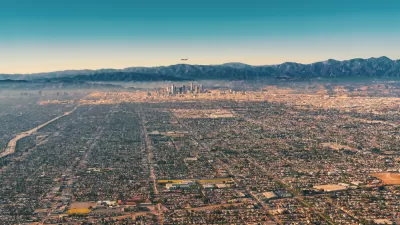Ernest Harsch interviews UN-Habitat Director Joan Clos on the challenges facing African cities in an age of unprecedented urbanization, from the abundance of slums to the threat of natural disasters.
The problems attendant to rapid urbanization in Africa today are by no means new. Overcrowding of slums, failing infrastructure, and stunted economic development are the hallmarks of mass migrations out of the countryside and into the city. But with a projected urban population of 1.2 billion by 2050, the scale and speed of Africa's current predicament will require a new, more expedient approach to urban planning across the continent.
As urban populations skyrocket, for instance, many policies obsolesce even before they can make it through the bureaucratic framework. "The only solution is to speed up the planning process," says Clos, "because you cannot stop in-migration. If it's complex because it involves different ministries, it needs to be simplified. And if it's too dependent on central government, then it should be delegated to the local authorities."
Clos also points to the dangers that unplanned cities face with respect to natural disasters, on the rise in recent years due to accelerating climate change: "These are now typically considered to be natural disasters. But in the future they will be seen as a failure of government... We have seen earthquakes with very high tolls of victims, and similar... stronger, earthquakes elsewhere, with very few victims. The natural disaster, the quake, is the same. What is different is the outcome. "
"There are many examples (of good planning) in Africa," he points out, "but mostly at the small scale. They are not perfect, but are advancing in a good direction, in Morocco, Mauritius, Rwanda. What we still don't see is a pro-active approach, of national governments developing national urban policies to cope with the challenging future of African cities."
FULL STORY: Africa faces nightmare of urban sprawl

Alabama: Trump Terminates Settlements for Black Communities Harmed By Raw Sewage
Trump deemed the landmark civil rights agreement “illegal DEI and environmental justice policy.”

Study: Maui’s Plan to Convert Vacation Rentals to Long-Term Housing Could Cause Nearly $1 Billion Economic Loss
The plan would reduce visitor accommodation by 25% resulting in 1,900 jobs lost.

Planetizen Federal Action Tracker
A weekly monitor of how Trump’s orders and actions are impacting planners and planning in America.

Waymo Gets Permission to Map SF’s Market Street
If allowed to operate on the traffic-restricted street, Waymo’s autonomous taxis would have a leg up over ride-hailing competitors — and counter the city’s efforts to grow bike and pedestrian on the thoroughfare.

Parklet Symposium Highlights the Success of Shared Spaces
Parklets got a boost during the Covid-19 pandemic, when the concept was translated to outdoor dining programs that offered restaurants a lifeline during the shutdown.

Federal Homelessness Agency Places Entire Staff on Leave
The U.S. Interagency Council on Homelessness is the only federal agency dedicated to preventing and ending homelessness.
Urban Design for Planners 1: Software Tools
This six-course series explores essential urban design concepts using open source software and equips planners with the tools they need to participate fully in the urban design process.
Planning for Universal Design
Learn the tools for implementing Universal Design in planning regulations.
Caltrans
Smith Gee Studio
Institute for Housing and Urban Development Studies (IHS)
City of Grandview
Harvard GSD Executive Education
Toledo-Lucas County Plan Commissions
Salt Lake City
NYU Wagner Graduate School of Public Service




























